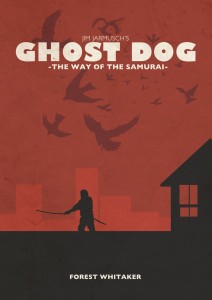I totally agree with Annie and Ebert’s point that representing the queer community as a whole is an impossibility. It’s impossible to represent any huge, broad concept in one film. As such, it’s important to discuss how Brokeback Mountain vignettes a queer relationship.
First off, I’d like to say that Brokeback Mountain was an excellent film in the fact that it kept my interest throughout its duration. This is due to the diversity of the shots, the dynamic sound, and the script/concept. The first two are results of great production and they are undeniably excellent on their own merits (Gustavo Santaolella deservedly won the Oscar for Best Original Score).
With great standalone components like sound and visuals, there’s naturally going to be a large audience. With that in mind, the script and the representation of a queer relationship are hugely important because a lot of people are going to see it — the stakes are higher than they would be for your average film. That being said, I don’t think Brokeback Mountain does for queer theory what the class thinks it does and here’s why:
I worked for a 93 year-old guy a couple summers ago and he had this to say about why some men are gay: “A man only turns gay when he can’t handle a real woman.” Obviously he was a product of a different time and obviously I neither agree with nor defend what he said, but the fact remains that certain people like him are going to cherrypick information and turn it all into confirmation bias. Perhaps it’s unavoidable, but Brokeback Mountain is chock full of confirmation bias for bigots who view the film through a lens of bigotry. Honestly, it’s painful to view the film in this light because I really think it’s awesome; however, it is important to identify where the film can confirm horrible, socially conservative biases so filmmakers can wholly avoid or successfully navigate them.
First, Jack couldn’t shoot the coyote for the life of him. Real men have to be able to shoot guns.
Second, Ennis is practically ridiculed for being sick of beans so early on in the summer. Real men can bear minor discomforts.
Third, Jack and Ennis’ employer chastises them for ranching so terribly on Brokeback, “you ranch this and you ain’t never no good.” Real men punch in 9-5 and they do their job well.
Fourth, as Erika Spohrer points out in UFT, they are tending soft, woolly sheep in Wyoming rather than herding cattle in Texas. Real cowboys herd cattle, not sheep.
Fifth, the two men who recognized Jack at the tractor dealership mentioned that he was a terrible cowboy at the rodeos. Real men can ride a bull.
Sixth, neither Jack nor Ennis could keep their wives happy. Real men can keep their wives satisfied (sexually and emotionally).
Seventh, Jack and Ennis aren’t gay — they’re bisexual. Real men aren’t gay and they certainly aren’t bisexual (or perhaps real men at least aren’t indecisive… i.e. they don’t live two lives).
Eighth, Jack doesn’t just die. Death is his punishment for being queer. Retribution?
(To clarify, the stuff I put in bold are all hypothetical bigoted reactions — not my own opinions.)
The list could go on forever but the point remains: when it comes to traditional masculinity, Jack and Ennis fall short. Sure, they were in the west and perhaps you can call Brokeback Mountain a western, but the two men aren’t hypermasculine because they noticeably couldn’t/didn’t handle their environment and they couldn’t/didn’t handle their masculine tasks. To put it bluntly: Jack and Ennis suck at doing traditionally manly stuff. Even Jack’s crowning achievement as a man where he shuts the TV off during Thanksgiving dinner is a struggle and, judging by his wife’s reaction, uncharacteristic.
Look, I’m not saying they had to be the best cowboys in all the land… I’m just saying that they didn’t have to be portrayed as the worst. It makes it seem like the only two representatives of the queer community the viewer is given don’t belong in the west, which is an awfully dangerous implication.
To bring it all back, the film had the first two components (awesome visuals and award-winning sound); however, I would argue that the third component (its Oscar-winning adapted screenplay) still came at the expense of unnecessarily stereotyping the queer community as unmasculine and unfit for the western genre.

